Contents
- The Brains of High Performing Remote Workers
- Motivation in Brain Chemistry: Not What You Think
- Underachievers And the Science of Junk Food Dopamine
- Fuzzy vs Sharp Brains: The Attention Myth Exposed
- 3 Dopamine Habits Absolutely Destroying Your Drive
- The Dopamine Habit That Ignites Motivation
- The Progress Principle: Set Daily Micro-Goals
- The Habits You Feed = the Life You Lead
What if a simple brain hack is the only thing standing between you and high performance? If you want to learn how to drastically improve how motivated you are to act… so that you can achieve ANYTHING – you need to know about dopamine.
The average man can do 8 consecutive pullups. To make it into the prestigious Navy SEALS program, 15-20 pullups is how you’d make an impression.
But world-record holder, Adam Sandel, can do 77 in a single minute.
- That’s 8X the average man’s capacity, and 7X that of an elite athlete.
The difference between high performers and the average person is seismic.
And you’d be right to assume that people like Adam Sandel operate differently, which results in their larger-than-life achievements.
What appears to be pure talent on the surface, is actually the neuroscience of high performance. Sandel’s brain chemistry is what gives him an advantage.
He taps into – and leverages - a dopamine operating system that keeps him ULTRA motivated to achieve his goals.
And you can too.
Because this dopamine operating system is 100% trainable.
The top 1% of remote workers know how to train their dopamine systems to boost motivation for laser focus, which makes them highly proactive.
They also know how to avoid the top dopamine drains sapping the energy from their bodies!
If you struggle with things like procrastination, low motivation and the inability to focus on what you’re doing – there is a PROVEN technique you can implement today to fix it.
Want to hack your brain for peak performance? This article demystifies the science of what goes on in your brain when you need to get things done.
Here’s how to break free from 3 dopamine traps and build the one habit that sharpens focus and elevates your job performance.
The Brains of High Performing Remote Workers
Wish you had the drive of a top performer?
Only 2-5% of workers are classified as people who perform above what is considered the average.
- Studies say the top 1% of these workers create 10% of company results
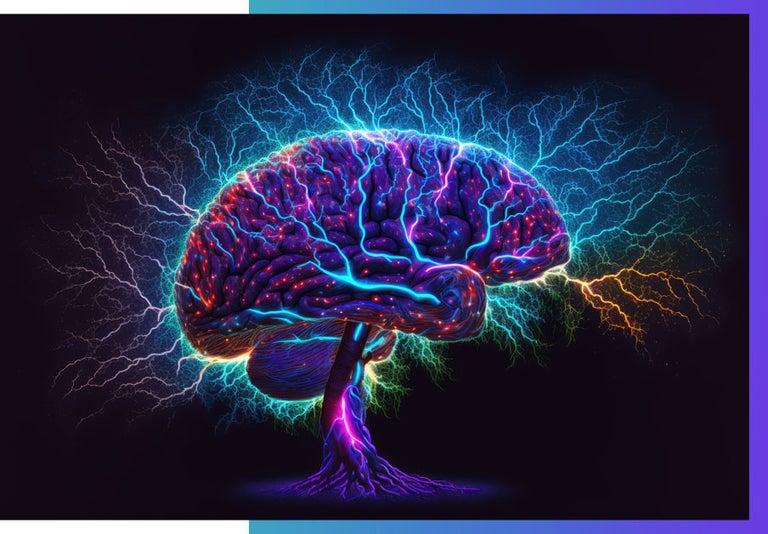
You don’t need to be a quantum mathematician to see why these individuals are always in-demand. They literally create 10X the value of the average worker.
And it’s their brains that make them different.
What they seem to have in natural abundance, others spend their entire lives without: endless, ceaseless, relentless motivation.
But if you know anything about motivation, you know it doesn’t appear from the ether.
It’s created…but how?
Motivation in Brain Chemistry: Not What You Think
Motivation is actually the product of a brain in complete agreement with itself.
It’s weird, but true.
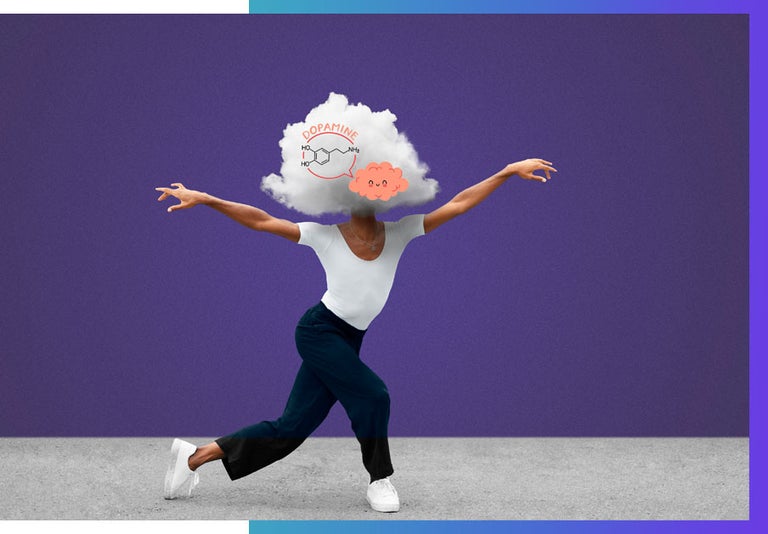
Dopamine is the brain’s chemical messenger that fuels motivation, reward, and the drive to achieve things.
It acts as a bridge between desire and action and propels us toward our goals by creating a surge of energy and focus when we anticipate a rewarding outcome.
The fact that dopamine drives reward-directed action is well known.
What is less well-known is that the brain is a trickster.
One of dopamine’s key jobs is to help you decide if something is WORTH doing.
If it’s deemed unworthy, your brain will RAGE against the machine – cutting off all dopamine supply so that you seek it out somewhere else.
Somewhere with a larger, more immediate reward!
Based on a study on dopamine and effort by Mark E Walton of Oxford University and Sebastian Bouret of the ICM Institute in France – your brain is wired to avoid mentally taxing tasks. If it’s hard and not worth it, forget it.
Brain says nope.
- High Cognitive Costs: These take a lot of working memory, which is subjectively experienced as exhausting, draining and depleting. Doing hard things makes you tired, and your brain knows that.
- Dopamine Fuels Motivation: A total driver of motivation, dopamine links incentives to cognitive effort. It also tracks the balance of effort and reward. When the reward doesn’t seem enough, your motivation to ACT will decline.
- Effort Aversion: Remote workers in tech often have to focus for many consecutive hours on complex tasks. This level of cognitive control requires consistently high levels of dopamine for execution.
- The Opportunity Cost: Ever been working on a hectic deadline, then suddenly found yourself doomscrolling for an hour? That’s your brain chemistry doing what it was designed to do.
Your world is lousy with dopamine traps. Netflix. Your phone. Social media. Having a quick game of Call of Duty.
We all have baseline levels of dopamine – but what we DO in our day impacts those levels. I’m talking about good habits and bad habits that either prompt us to act, or tell us it’s just not worth it.
- The bad news: The world is a snack box of junk-food dopamine hits.
- The good news: You can reset your brain’s dopamine cycle with the right habits.
The goal is to keep your brain in agreement with itself.
And that means a habit revamp.
Underachievers And the Science of Junk Food Dopamine
Underachievers have massively dysfunctional dopamine drivers.
While high performers have the opposite – they’ve recognized the functional impact of motivation and have taken steps to control and align chemistry with mindset.
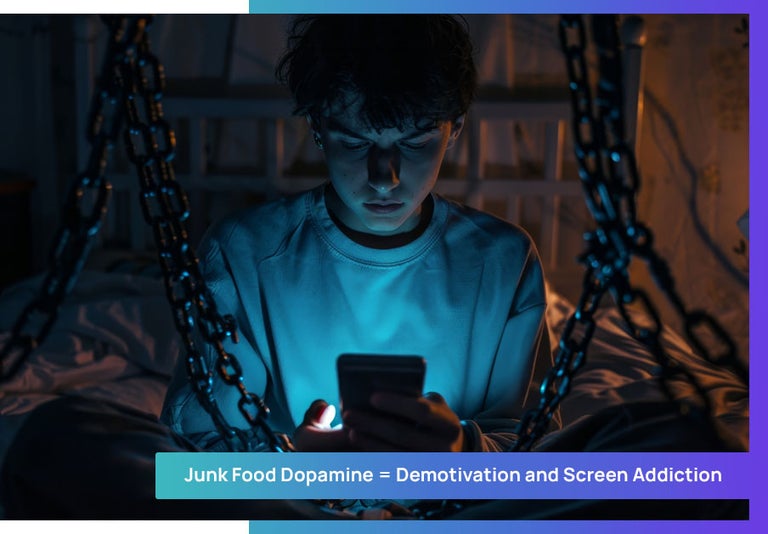
Think of a 28-year-old who can’t hold down a job, because all they want to do is console game 24/7. Or the 32-year-old executive who doesn’t have time for career progress, yet is always in a zombie trance glued to their phone.
All brains understand the assignment: get dopamine.
But high performing brains know that there’s a massive difference between junk-food dopamine and nutritious dopamine. One tricks your brain and leads to ill health and dysfunction, the other will give you everything you need to perform at the highest levels.
The average person in the US spends:
- 62 minutes a day watching Netflix (Statista, 2024)
- 58 minutes a day on TikTok (Statista, 2024)
- 3 hours and 15 minutes doomscrolling per day (Dr Rejiv Desai)
When you add these up its not hard to see the damage a dysregulated dopamine system can do in your life, literally robbing you of hours – with no tangible reward.
Screens hijack your dopamine system, cause phone addiction and force your brain into a constant state of ‘craving more.’
More of NOTHING.
Do you remember all of those funny TikToks you watched 2 weeks ago? Heck no. But you’ll never get that time back in your life.
Fuzzy vs Sharp Brains: The Attention Myth Exposed
We asked our remote worker community on LinkedIn what daily habit they believed made their brains the fuzziest.
I was curious to see what kind of impact screens were having on a segment of the global population who – according to one study – spend an average of 13 hours a day staring at them (2 hours more than office workers).
What’s harming our brains the most, according to us?
In this poll, 9843 people weighed in from all over the world.
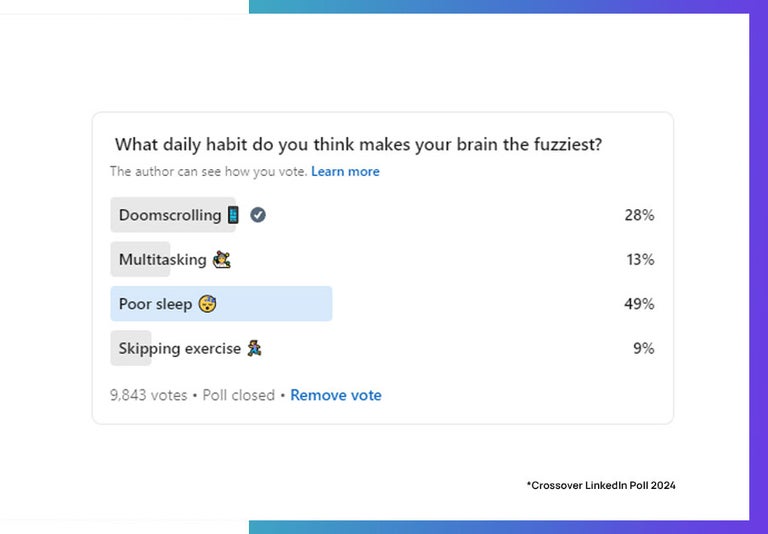
A resounding 49% of respondents said that poor sleep was the biggest culprit, followed by doomscrolling (28%), multitasking (13%) and skipping exercise (9%).
The results of this poll are telling.
3 Dopamine Habits Absolutely Destroying Your Drive
The poll supports what we all struggle with, and it boils down to dopamine dysfunction. So here are the three habits you’re trapped in and how to break free from them.
Psychologists called them dealbreakers. Whatever you call them – these have to stop. They’re doing more harm than you know.
#1: Screens an Hour Before Bedtime
You’ve heard it before, but you didn’t take it seriously.
If you sleep with the TV on, watch shows right before bed, scroll on your phone in bed before going to sleep – or any variation of looking at a screen, then sleeping. STOP.
Yes, it’s entertaining and comfortable. But it’s an everyday habit with consequences.
- RIP Your Sleep: Without solid rest, your dopamine receptors become desensitized, making it harder to feel motivated and focused on tasks, even when you want to. Sleep doesn’t just regulate and refresh energy, it renews your ability to feel motivated and make good decisions. Period.
Shoddy sleep = shoddy work.

And what makes it hard to sleep? Before bed screen time. The National Screen Foundation says blue light an hour before bed = disrupted sleep.
If this goes on for too long, your dopamine receptors decrease and it becomes harder for your brain to receive dopamine.
Screen time before bed literally rewires your brain for sleeplessness, which causes impulse control issues, lack of focus and increased anxiety in the short term.
Long-term it’s been connected to a host of serious illnesses.
#2: Daily Doomscrolling
With the invention of the infinite scroll by Aza Raskin in 2006, it’s been 18 years of escalating screen addition brought on by today’s endless social media void: the doomscroll.
Political theatre. Wars breaking out across the world. Someone local who’s lost their beloved pet turtle.
Bad news is prolific and it’s everywhere.
There’s a reason WHY we call it doomscrolling: many of us can’t help it. We crave it. Converting mind-numbing behaviors into brain cocaine is what tech companies do best.
And it comes at an unfathomable cost – the minutes, hours and days of our lives.
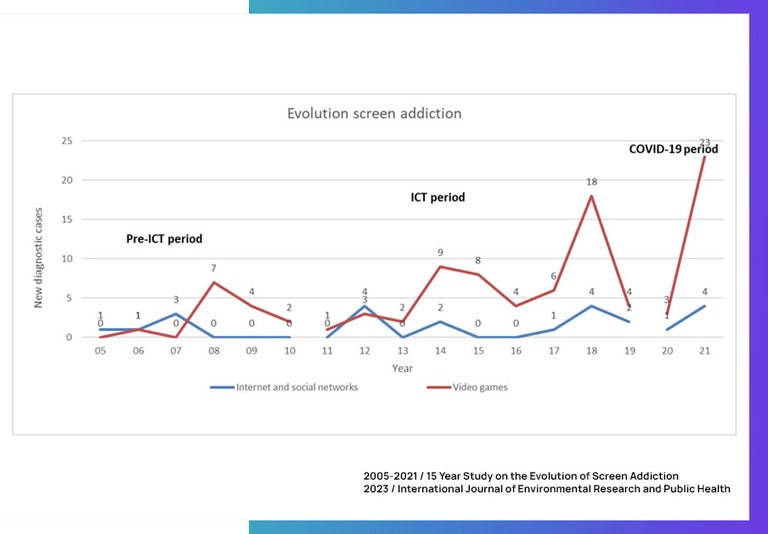
The most common time for people to doomscroll is right before bed, between the hours of 6 and 9pm. And almost predictably, 72% of workers have admitted to missing deadlines or underperforming on the job because of it.
- Doomscrolling as Morbid Entertainment: This hijacks your dopamine cycle creating short, shallow bursts of stimulation that literally DULL your brain’s natural reward response. When you doomscroll, you’re rewiring your brain for passive consumption, instead of focused action. Doomscrolling isn’t just a time suck, it’s a drive killer.
Since 2006, people have spent more and more time on social media each year.
With companies perfecting how they seize and keep your attention – this is a locked door buffet you can’t escape without real mindfulness and effort.
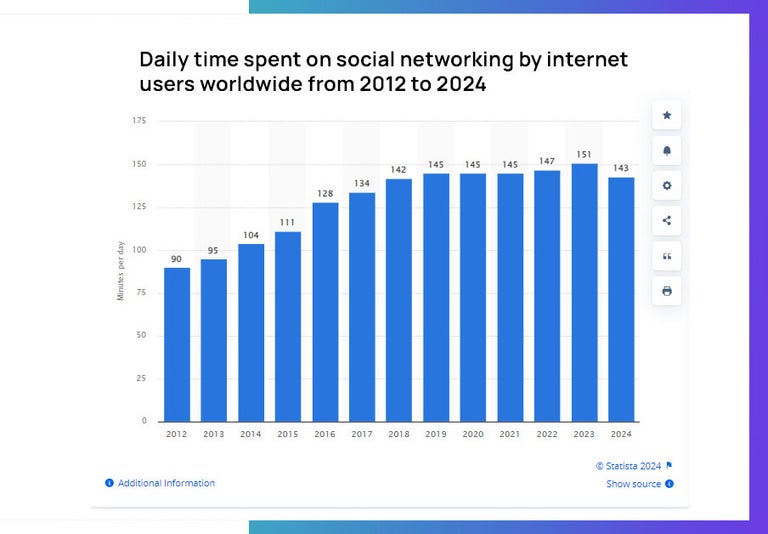
Social media users are on the rise, so are screen addiction rates and resulting mental health concerns.
This ‘innocent’ form of entertainment you’re exposing your brain too – causes things like popcorn brain and the creation of sombies.
- A sombie is a recent term for digital zombie. A person who can’t unplug or disconnect from the internet and live a full life.
#3: Doing Too Many Things at Once
Do you tend to switch from one thing to another…a lot?
It could be a direct result of your screen exposure, lack of sleep and propensity to doomscroll.
Accidentally, you’ve given yourself something called ‘popcorn brain’ and you’ve convinced yourself its multitasking. What it really is – is your dopamine system going into a kind of tailspin.
Mayo Clinic says Computer Scientist Dr David M Levy coined the term. It means: being so hooked on electronic multitasking that the slower pace of life offline holds no interest.
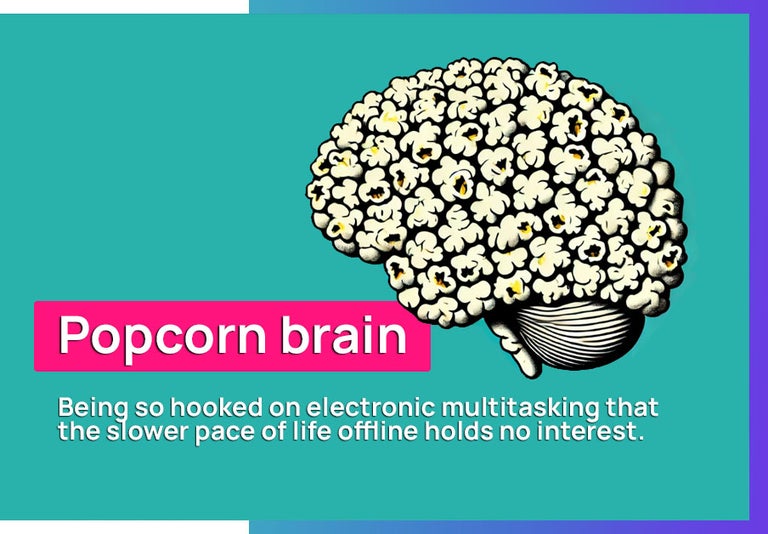
This phenomenon is NOT productive work.
It causes you to jump from one task to another, seeking a novel dopamine hit. If you have intrusive thoughts about checking your phone, switching to doing a different part of your day’s work, or scrolling socials – these are all those kernels popping off. Your brain wants a hit!
FACT: Checking your phone compulsively as you work…popcorn brain.
- Multitasking Madness: When you jump between tasks you overload your dopamine pathways, which creates scattered focus. This ALSO weakens your brain’s ability to build satisfaction from completing a single task. Multitasking seems productive, but it’s interrupting your brain’s motivation circuitry.
The human brain sucks at multitasking. It’s the enemy of flow state and deep focus, the pinnacle of productive work.
And, you guessed it. There’s a vicious cycle at play here that keeps you online and away from more positive habits – like exercise.
- Skipping Vital Exercise: You already know that when you exercise you feel good. That’s because you’re creating and receiving more dopamine, which enhances focus. Skipping exercise means lower baseline motivation, less energy and enthusiasm for tasks ahead of you.
No exercise. Popcorn brain. Doomscrolling and rubbish sleep.
Ask most people you know if this resonates and they’ll say YES.
So, you see – it’s not that we can’t pay attention.
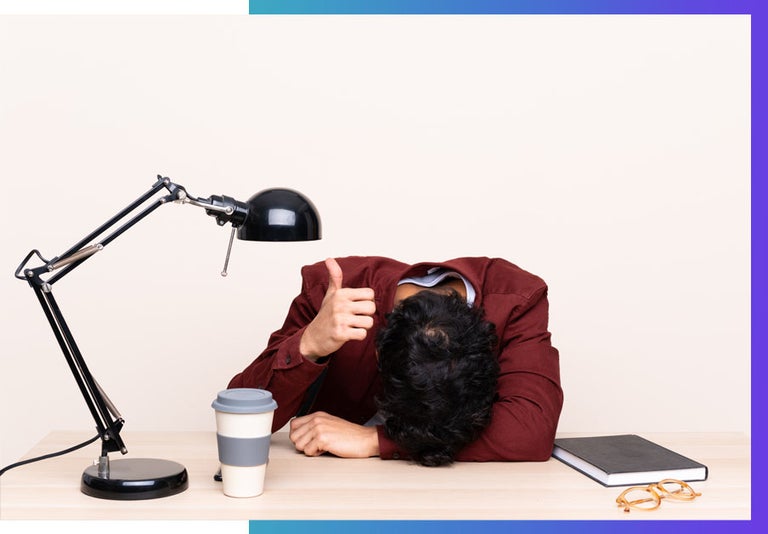
It’s that our everyday choices are making it chemically HARDER for our brains to stay sharp and motivated. We all need dopamine, like we need food.
But like our food choices, some people unknowingly choose easy over hard, with little thought as to how it’s impacting their operating systems.
They’re feeding dysfunction.
They choose junk-food over nutrition. And the result is tired, dopamine draining habits that leave us full, but foggy and unmotivated.
So, what do top performers do instead?
The Dopamine Habit That Ignites Motivation
Let's get back to Adam Sandel - or Professor Pullup as they call him.
He isn’t just a performance athlete. He’s a Professor of Law at Harvard University, and author of a book called Happiness in Action.
Overachievers like him are careful never to let bad dopamine habits creep in. Instead, they build routines for themselves that are designed to create a positive dopamine cycle that fuels motivation.
It’s hard to imagine someone like Sandel sitting like a sombie, mindlessly scrolling on their phone for hours while eating McDonalds. It would make no sense.
Instead, these achievers focus on something significant: progress.
The Progress Principle: Set Daily Micro-Goals
All top performers have goals.
But you don’t often hear about the small micro-goals that lead up to the big wins.
And these aren’t just steps on a ladder, they’re designed to create a strong reward drive which of course – is key to feeling motivated.
For someone like Sandel, the big goal was ‘set the world record for most pull-ups done in a single minute.’ But within that lofty achievement was hundreds of smaller, less impressive wins that drove him forward.
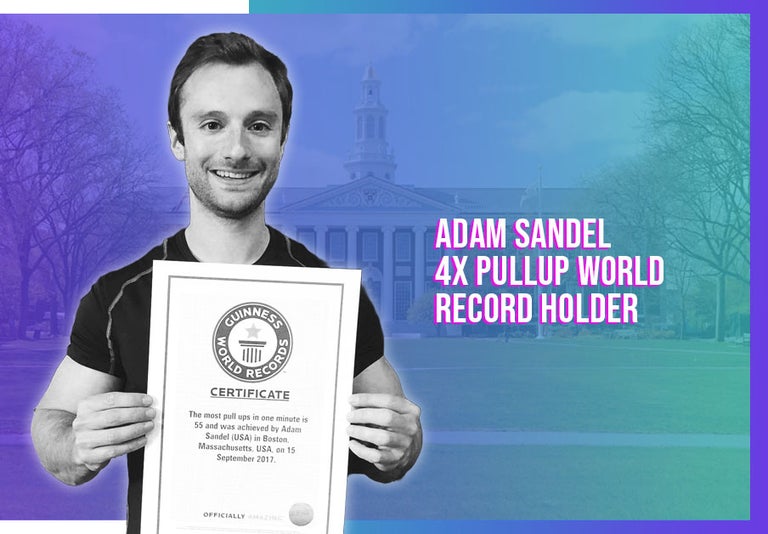
Shaving seconds off his recovery time, doing 5 extra push-ups daily, and gradually strengthening his endurance.
These micro-wins are unglamorous, but they created habits that carried him to greatness over time.
Your brain loves tangible progress – it’s an amazing reward that releases dopamine in floods. That feel-good sense of accomplishment is the BEST.
So how do you make it work?
- Break projects into manageable steps
- Turn big goals into small daily tasks that align with your vision
- Use daily checklists to track and celebrate progress
– it’s THAT easy.
The Progress Principle, (by Teresa Amabile and Steven Kramer) emphasizes the power of small wins to ignite motivation and momentum.
Every small step forward, no matter how minor - fuels a sense of accomplishment and creates a positive cycle that keeps you engaged and moving toward your larger goals.
Here’s how I apply it:
- Every morning, I review my weekly to-do list
- I pick three critical tasks that will move me closer to my CORE vision
- As I complete each one, I highlight it in green & take a 15-minute break when it's done
The tasks aren’t always comfortable. They’re not always quick.
But they are non-negotiable.
These three tasks set the tone for my day and create momentum for tomorrow.
Marking them as done creates a feedback loop of incremental progress. This simple practice creates a reliable dopamine reward cycle for my brain that works.
And this reward cycle is tangible. It’s HEALTHY. It’s nutritious dopamine!
I love what I do because I get things done. Work gives me energy.

The secret to top performance is about showing up consistently for those small wins, day after day. Because motivation isn’t something you wait for - it’s something you build through daily progress.
- Set Micro-Goals: Break large tasks into smaller, snackable tasks and mark them as done when you complete them.
- Daily Reflection: Reflect on your progress at the end of the week, focusing on what you achieved rather than what you didn’t manage to finish.
- Celebrate Progress with Your Team: If you need a dopamine boost, celebrate your wins, no matter how small. A lot of work is invisible, so draw attention to it. Breaks, coffee, acknowledgement, a nice walk – whatever floats your boat.
You can watch The Progress Principle TedTalk here.
Make progress on meaningful work every day to keep your dopamine HIGH.
The Habits You Feed = the Life You Lead
Are you feeding progress or procrastination?
Performance or inaction?
Focus or distraction?
These are choices.
You’ll know because your brain is telling you, right now.
It needs to be in constant alignment for your dopamine system to work efficiently, remember?
If you’re not getting nutritious dopamine from the work you’re doing, (and the life you’re living) you’re doing it wrong.
Your work needs to be hard AND worth it.
That’s what makes it so deliciously satisfying!
First – get rid of your junk diet of sloppy, quick-fix dopamine.
- Replace doomscrolling with planning & prioritizing
- Swap multitasking with perfecting the art of deep focus
- Don’t get off working behind screens all day, and then stare at more of them!
- Sleep quality is the greatest gift you’ll ever give your tired brain
Simple in theory. Hard in practice!
Most of you reading this will agree, then go back to bad dopamine habits. I’ve been there. Snapping out of autopilot isn’t easy.
I’m challenging you to try this for 1 week and report back on how it’s changed your life.
Lock your phone away. Don’t watch TV, or game, or look at a single screen once you’re done with work. Fill that empty time with sunlight, exercise and good people.
Screens are the great energy vampires none of us can see. They’re feeding on our life force every day, stealing the time we have and robbing us of our dreams and potential.
Sure, they’re a lovely entertaining distraction.
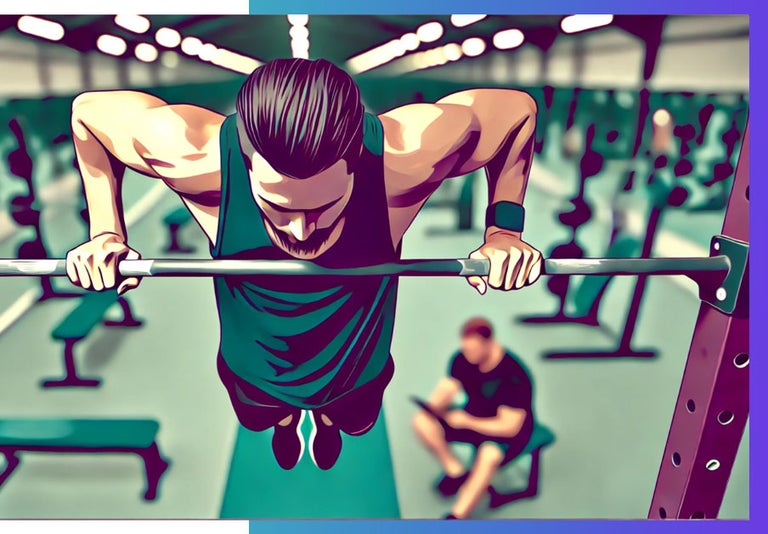
But people like Adam Sandel know that when you perform at the highest level, you don’t need to be distracted from unrealized potential. You’re too busy pursuing it. Living it.
Sandel didn’t break pull-up records overnight - he built a cycle of daily micro-wins that fed his progress. He smashed goals every day. That’s the dopamine hack you need.
Find ways to create tangible progress in your work life.
Every hour. Every day. Every week.
It’s the most sustainable, addictive motivator there is.
Adam won and lost the Guiness World Record for most pullups in a minute 4 times. Each time, he won it back.
When you focus on consistent progress, your brain learns to crave the work that moves you forward. And instead of emptiness, you’re rewarded with a career less ordinary – future-proofed, highly skilled and always in demand.
So, seize this challenge.
Choose hard, meaningful work that aligns with your purpose.
Be more like Adam - switch off the screen and pull yourself up.








